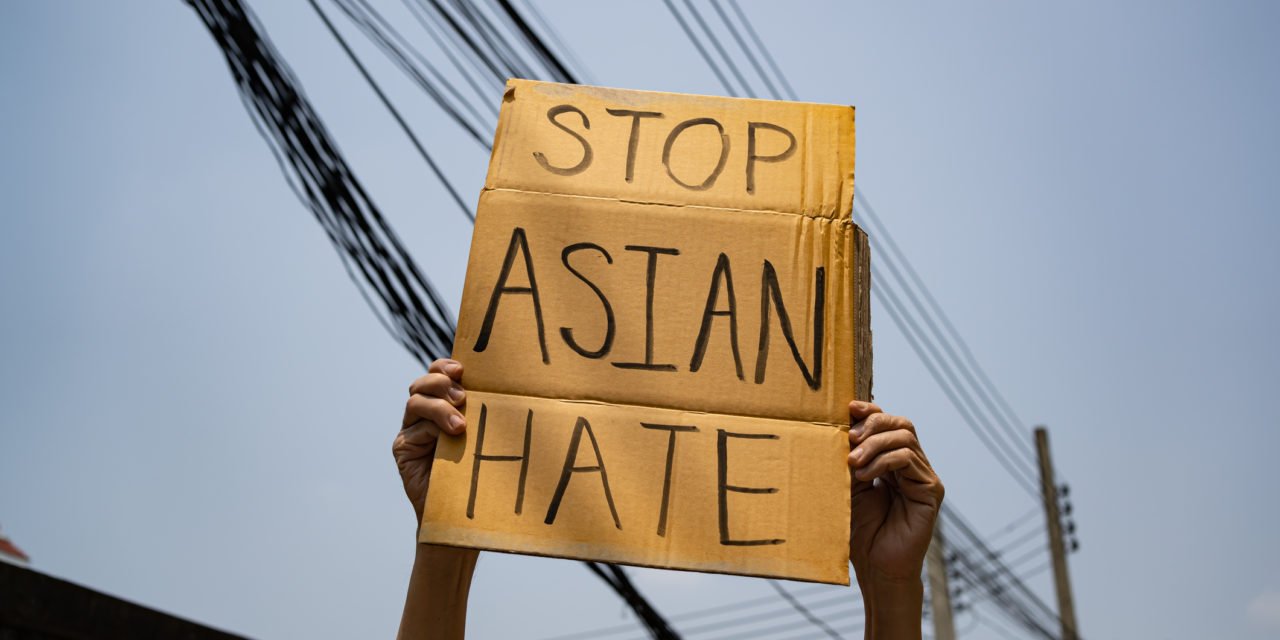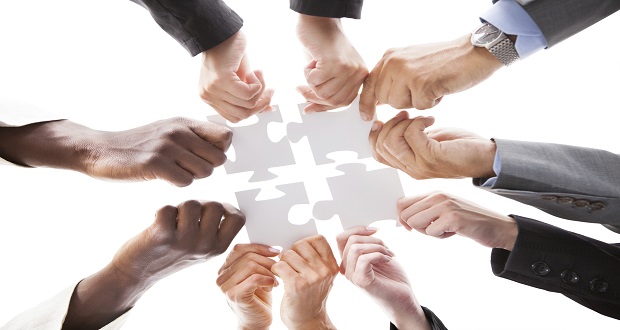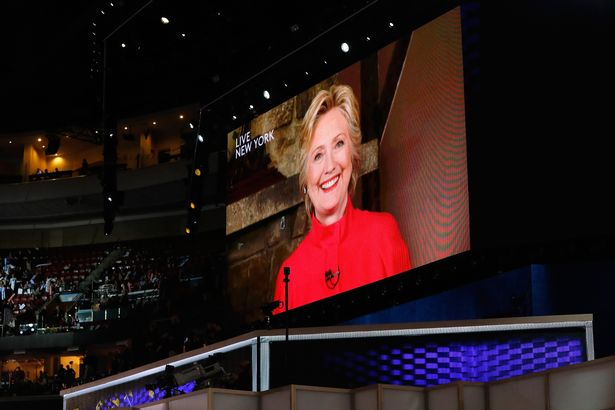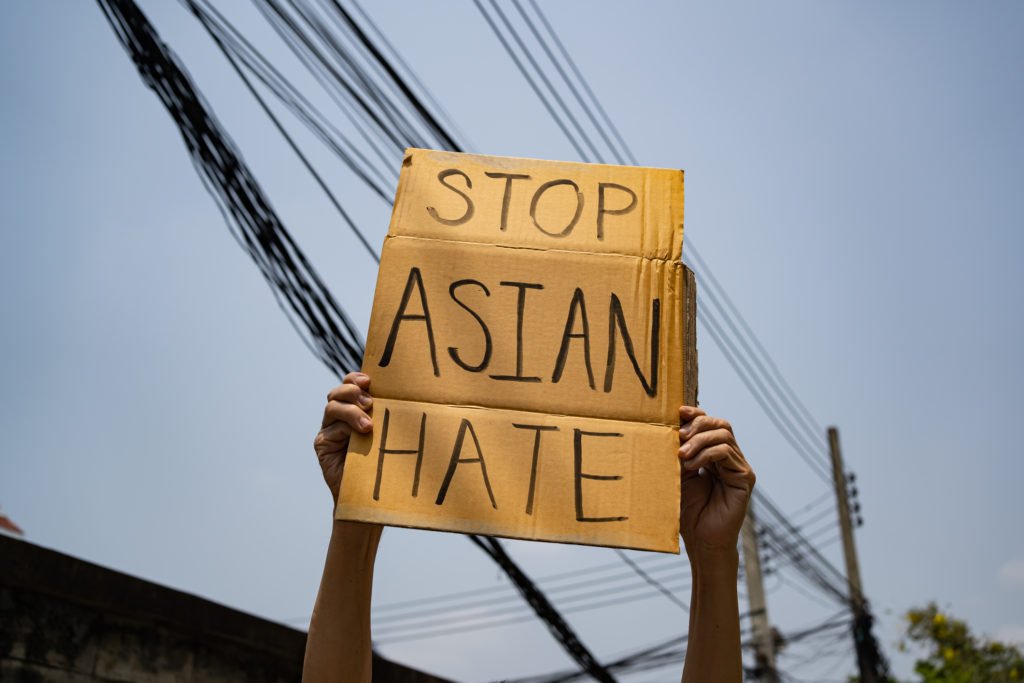
As the Atlanta office Diversity, Equity, and Inclusion (DEI) Committee Chair at Booz Allen Hamilton, I work with our team to create safe spaces for my colleagues, to raise awareness about issues we see every day and to provide wellness resources to support our physical and mental health. The events of the past year and a half, from pandemic stress to social injustice awakenings, among many, have not been easy on anyone.
Since I started in this role, I have felt like a part of this community — cared for by fellow colleagues and leadership. I didn’t immediately realize how much it mattered that my workplace and colleagues showed up for me and other Asian Americans after the mass shooting in Atlanta-area spas on March 16, 2021. Six of the victims were Asian-American women.
I didn’t immediately realize how much it mattered that my workplace and colleagues showed up for me and other Asian Americans after the mass shooting in Atlanta-area spas on March 16, 2021. Share on XI am sharing the following story as my own personal journey and my own form of coping with the ongoing anti-Asian violence and sentiments. For many of us who were raised by Asian immigrant parents, mental health was not really discussed; in fact, any form of negative feelings were considered shameful.
I learned about the mass shootings at the Atlanta area spas through a group text with friends. I didn’t even click on the news article until an hour later, only realizing then that two of the shootings happened 0.2 miles away from where I am currently living. My parents called me the next day, asking if I was okay, and telling me to avoid going anywhere outside or out at night.
I initially had no idea that at the same time, my Black women colleagues from our DEI Team worked with our Atlanta leadership team to draft a message to our office acknowledging this tragedy, and share related resources. I told someone on my proposal team that I needed help meeting a deadline because of what had happened. She immediately said she was happy to help, that she would take care of it, and that I should get some rest. It was one of the nicest gestures I had received — from a colleague I barely knew.
At first, I felt guilty that people from other marginalized groups experience such tragedies more regularly; part of me felt it wasn’t my time to speak up yet. In the following days, I had so much work I needed to keep up with, so I compartmentalized. I didn’t begin to process everything until the weekend, when I finally had the chance to cry. I couldn’t walk outside alone for a week. On my drive to the local post office, I would pass by the two spas each time, seeing a wall of flowers and posters.
I felt a calling to pay my respects to the victims of the shootings — I had to visit my neighbors. However, I couldn’t do it immediately, as it felt too close to home. I took my time and spoke with friends and colleagues about my experience. Finally, almost a month later, my partner and I bought some flowers and took a 5-minute walk to both spa sites. It felt raw to be in the same location where innocent lives were taken away in seconds. By the time we visited, all the flowers and posters were removed, and the buildings were abandoned, their surroundings empty except for leftover debris. The emptiness felt similar to how people had stopped talking about this tragic event a week later. We constantly have the next tragedy to cope with. We grow numb to survive.
By the time we visited, all the flowers and posters were removed, and the buildings were abandoned. The emptiness felt similar to how people had stopped talking about this tragic event a week later. Share on X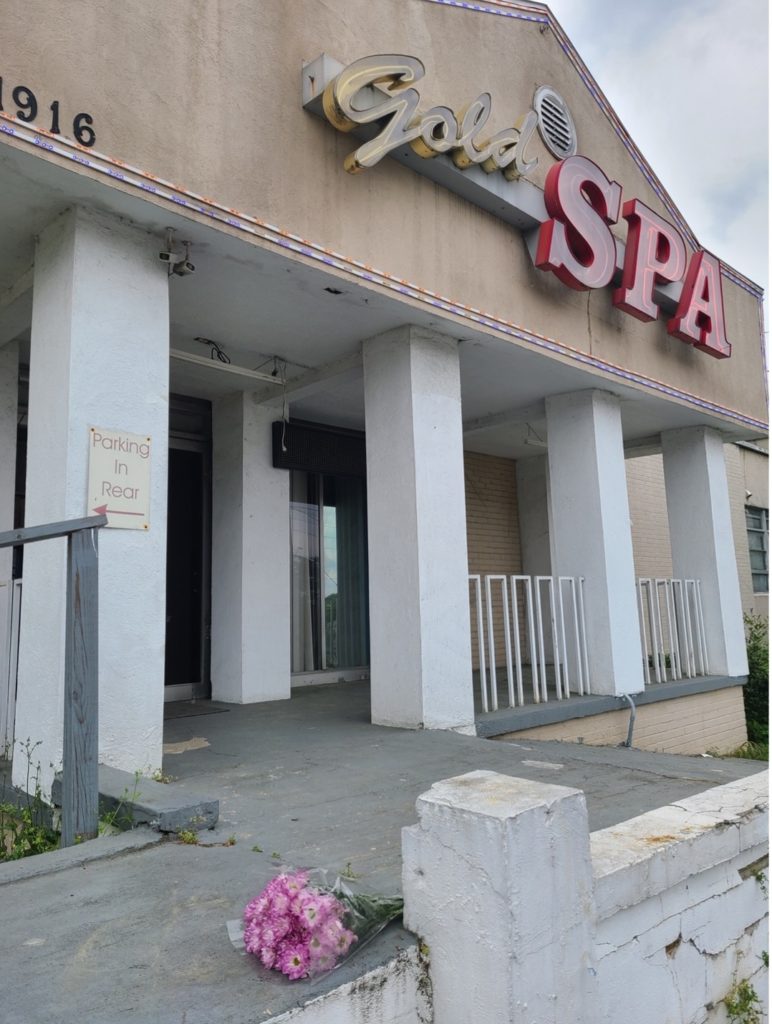
As I was processing all of this, I realized other Asian American colleagues were probably feeling the same. A week later, I volunteered to host a listening session for the Atlanta office and allies — and for myself, as I had still more to process even as I supported others..
Hope and a Call to Action
We hear about tragic events every day: attacks on the Asian elderly, mass shootings, a Black or Brown person/child’s life being taken away too soon by the system that does not work for us. These triggers come on top of a long-lasting pandemic and our own personal life stressors. People and organizations can’t keep up with denouncing every single event that happens, because it really is too much.
However, there are a few things we can do to care for one another:
- Solidarity — not just from our white allies, but from our BIPOC community. We have to look out for each other. Our struggles are shared due to the root cause of White Supremacy.
- Take Bystander Intervention trainings offered by various organizations, such as Hollaback.
- Participate in your local community and mutual aid initiatives. We can only make this a safer and better world if we know and love our neighbors better.
Thank you for reading my story, and I ask that we all take just one step to care for one another starting today.
Participate in your local community and mutual aid initiatives. We can only make this a safer and better world if we know and love our neighbors better. Share on X
Disclaimer: Julia S. Chen has been a public health professional for eight years, the last year and a half as a Senior Consultant with Booz Allen Hamilton. The views and opinions expressed in this article are those of the author and do not necessarily reflect the official policy, opinion, or position of her employer.

